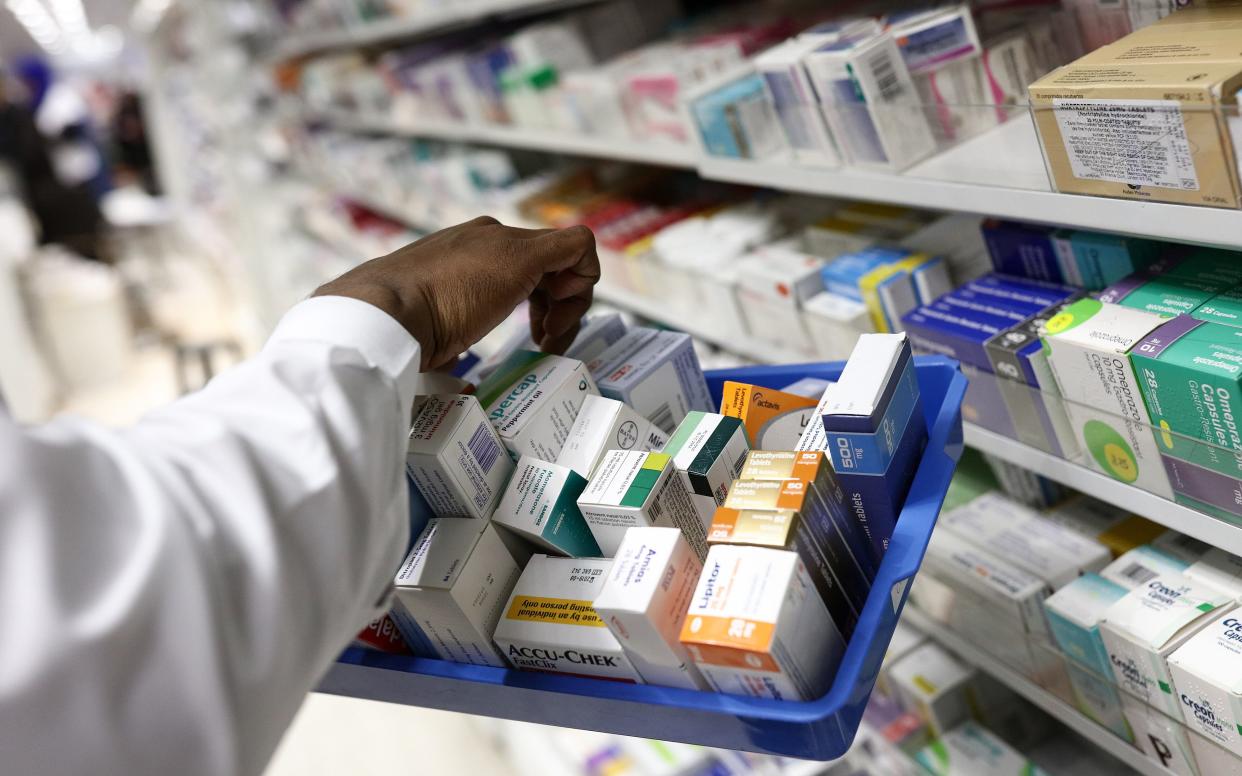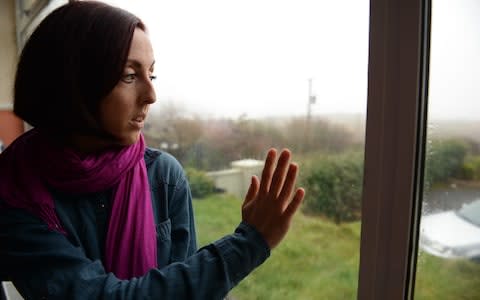Middle aged women fuelling rise in addictions to painkillers, anti-anxiety drugs and antidepressants

Ministers have ordered a landmark review of prescription drug addiction, amid concern over the rising number of women becoming hooked on painkillers, anti-anxiety drugs and antidepressants.
NHS figures show one in eleven adults prescribed potentially addictive drugs in the past year - with a 50 per cent rise in prescribing levels over 15 years.
Ministers said decisive action was needed to stop the problem reaching the scale now seen across the United States.
Two thirds of those on “dependence forming medicines” are female, and typically in their 50s and 60s, national research shows.
The data shows a 60 per cent rise in the amount of time patients are staying on opiate-based painkillers, which are supposed to be prescribed for short periods.

Overall, the percentage of patients in England on the main medicines classed as “potentially dependence forming” has risen from six to nine per cent, between 2000 and 2015 - a 50 per cent increase - the research shows.
It means almost four million adults have been prescribed such medications in the last year.
Separate statistics show that prescriptions for anti-depressants have almost tripled since the millenium, with 64 million NHS prescriptions now doled out annually - compared with 22 million in 2000. UK levels are now fourth highest among Western countries, and rising faster than in any other country.
Although antidepressants are not classed as dependence forming, they will be included in the review, amid concern that some patients experience severe difficulties coming off the drugs.
Ministers have instructed Public Health England (PHE) to carry out an independent review of the evidence, and produce recommendations on how best to address the growing drug problem.
Public Health Minister Steve Brine said: "We know this is a huge problem in other countries like the United States-and we must absolutely make sure it doesn't become one here.”

"While we are world-leading in offering free treatment for addiction, we cannot be complacent - that's why I've asked PHE to conduct this review.
"PHE has an excellent track record in robust evidence reviews, and this will help us understand the scale of this issue here and how we can address it."
The review will cover benzodiazepines and similar drugs usually prescribed for insomnia, opoid pain medicines, antidepressants and pills used to treat anxiety disorders. Findings are due to be published early next year.
Professor Helen Stokes-Lampard, Chairman of the Royal College of GPs, said: “Addiction to any substance can have a devastating impact on a patient’s health and wellbeing – and that of their family and friends.

“We welcome this independent review as a means of better understanding the complex reasons behind addiction to prescription medication, and to shape our approach to tackling it.”
She said many medications which were potentially addictive could be very effective, with the right supervision.
But too often, patients who would have preferred talking therapies were remaining stuck on long-term medication, because no other help was on offer, she said.
“We know most patients would rather not be on long-term medication and where appropriate we will explore non-pharmacological treatments, but these – and this is particularly so for psychological therapies - are often scarce at community-level,” the GP said.

Rosanna O'Connor, PHE director of Drugs, Alcohol and Tobacco, said: "It is of real concern that so many people find themselves dependent on or suffering withdrawal symptoms from prescribed medicines.
“Many will have sought help for a health problem only to find later on they have a further obstacle to overcome.
"PHE very much welcomes this opportunity as it is vital that we have the best understanding possible of how widespread these problems are, the harms they cause, as well as the most effective ways to prevent them happening and how best to help those in need."
Addiction nation: the most common types of potentially addictive drugs being prescribed.
The latest figures show that 9 per cent of adults - around 4 million people in England - were prescribed a drug classed as potentially dependence forming in the last year.
Often, patients were prescribed more than one type of drug.
The most common type of drugs prescribed were opoids, strong painkillers which are supposed to be only prescribed short-term for severe pain. Five per cent of adults - around 2.2 million people - were prescribed these in England in the last year.
Two per cent of adults were prescribed benzodiazepines, which can be used to treat insomnia, the figures show.
Two per cent of adults were prescribed another class of medication, known as Z-drugs, because of names such as zaleplon, zolpidem and zopiclone, which are also used to treat sleeping problems.
And two per cent of patients were prescribed GABAergic medicines - a relatively new form of medication, which is used to treat anxiety disorders, certain types of pain, and is sometimes prescribed for social phobia and alcohol withdrawal.
Source: Nat Cen Social Research
Drugs in numbers:
2000: 9 per cent of adults on potentially dependence forming medicines (opoids, drugs such as benzodiazepines for sleeping disorders, and drugs used for anxiety disorders)
2015: 6 per cent of adults on potentially dependence forming medicines.
Source: Nat Cen Social Research
2000: 22 million anti depressants prescribed in England
2016: 64 million anti depressants prescribed in England
Source: NHS Digital

 Yahoo News
Yahoo News 
